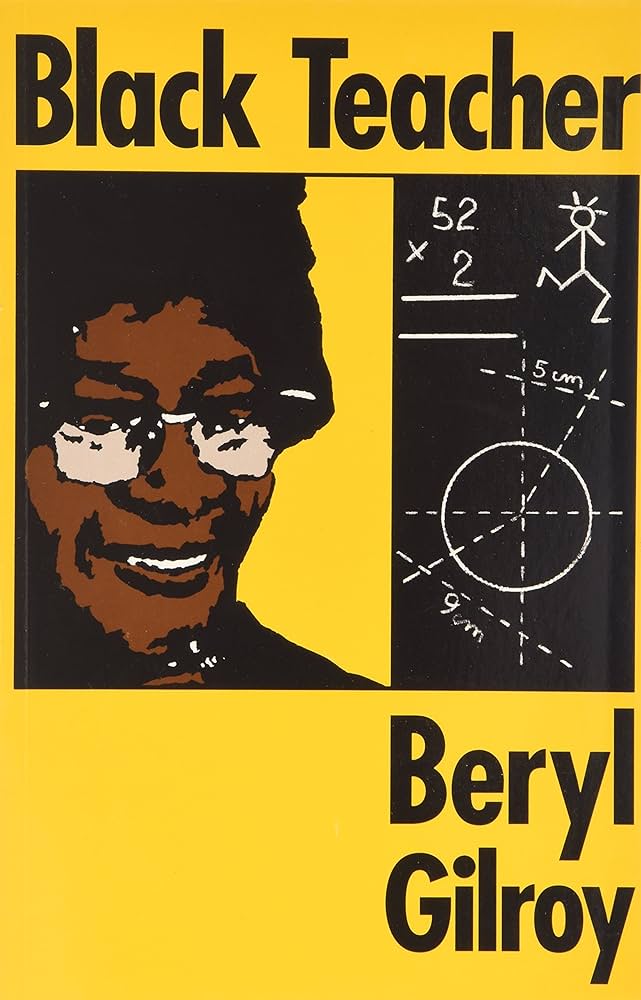The Observer
Black Teacher — Beryl Gilroy


In 1998, the late Beryl Gilroy wrote: “In the tradition of Black women who write to come to terms with their trauma, or alternatively to understand the nature of their elemental oppression, I wrote to redefine myself and put the record straight.” It’s important to start with this reflection when considering Gilroy’s 1976 memoir, Black Teacher, now republished with an introduction by Bernardine Evaristo. At a time when works about racism are prescribed as medicine for white people, Gilroy’s book seems archaic. Her writing was her own treatment; the remedy to living in Britain as a West Indian woman.
Gilroy was born in Guyana in 1924, and arrived in England in 1952 as an experienced and highly qualified teacher. However, because of aggressive anti-Blackness she was unable to secure a post for many years. The path to becoming one of Britain’s first black headteachers began at a mail order store in east London, where Gilroy worked as a clerk and experienced her first taste of British hospitality. Her “mate”, Sue, moved to Swiss Cottage in north London and told Gilroy not to visit. “I don’t want ’em to see me ’obbnobbin with nigs,” Sue told her. Years later, now living in a halfway house, Sue appeared at the school where Gilroy was headteacher, looking to place her twin girls in the nursery. “Poor Sue!” wrote Gilroy. “Time had savaged her.”
Gilroy writes with surgical precision of white women’s obsession with, and phobia of, her body
Gilroy’s first job in education was in a Catholic school, teaching a class of seven-year-olds who whimpered and hid under the table when she arrived. Most of the white pupils she taught throughout her career parroted remarks made by their bigoted parents. “Black people live in trees. Me dad saw them isself. He was in the war. Black people roast people and eat them,” one child says. But with strength, wit and incredibly imaginative teaching, Gilroy turned the most troublesome of classes into engaged learners.
By the 1960s, schools had grown more ethnically diverse, and Gilroy’s challenge was now to consider the different cultural expectations of teaching. Still, she was a sensitive and experimental educator who cared deeply for expanding young minds through child-centred learning. “The pace, the temperature and the pulse of the classroom had to suit each child,” she wrote. “I turned to art and drama to help them towards an awareness of alternatives and to set new boundaries of their thinking.”
In many ways, Black Teacher is a book about white women, whose every grotesque prejudice is included here. Gilroy writes with surgical precision of their obsession with, and phobia of, her body. When breastfeeding, her nipples become the talk of the clinic. “That blackness around ’er tits! D’you reckon that’s good for the baby?” one woman shouts, worried about a child who would grow up to become the formidable cultural and social theorist Paul Gilroy. On a school trip, Sister Consuelo screams “Don’t touch me!” when Gilroy attempts to fan a wasp away from her neck, making Gilroy hyper-aware of her own hands. “I was nervous about picking things up,” she writes. There aren’t many such moments when Gilroy reveals her wounds, but when she does, it interrupts your breathing.
Early criticism of Black Teacher questioned its relevance. One reviewer argued: “We hear plenty of Nig-Nog, Nig-Pig and Wog hurled in her direction… Nonetheless, is it worth yet another voicing? Can the publishers seriously ask that the book should be taken to heart by educationalists and parents?” Gilroy’s title sat on the fringes of works exploring the postwar Caribbean immigrant experience, and after retiring from teaching she became an ethno-psychotherapist and wrote several novels — two of which took 30 years to find a publisher.
Last year there were calls to retitle schools bearing slave owners’ names, sparking a petition to name Beckford primary school in West Hampstead, north London, after Gilroy, a former head there. She deserves a similar level of recognition for her contribution to literature. Like ER Braithwaite’s To Sir With Love and Sam Selvon’s The Lonely Londoners, Black Teacher is a rare document of Black British survival, doused in fury and humour and love.